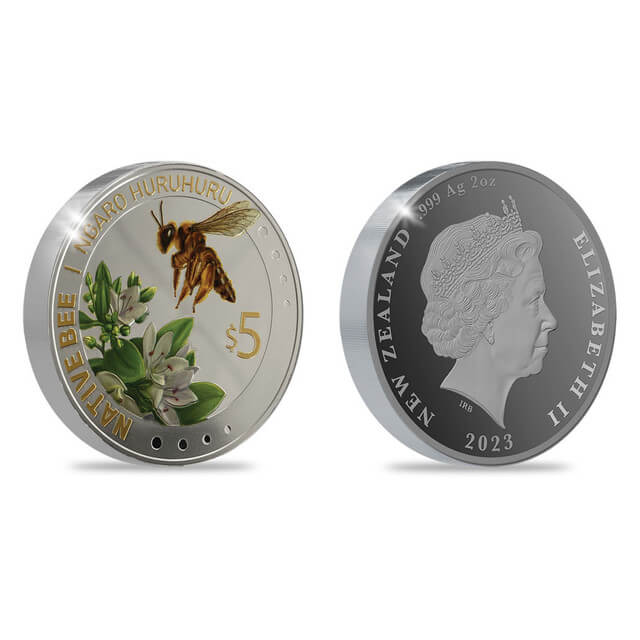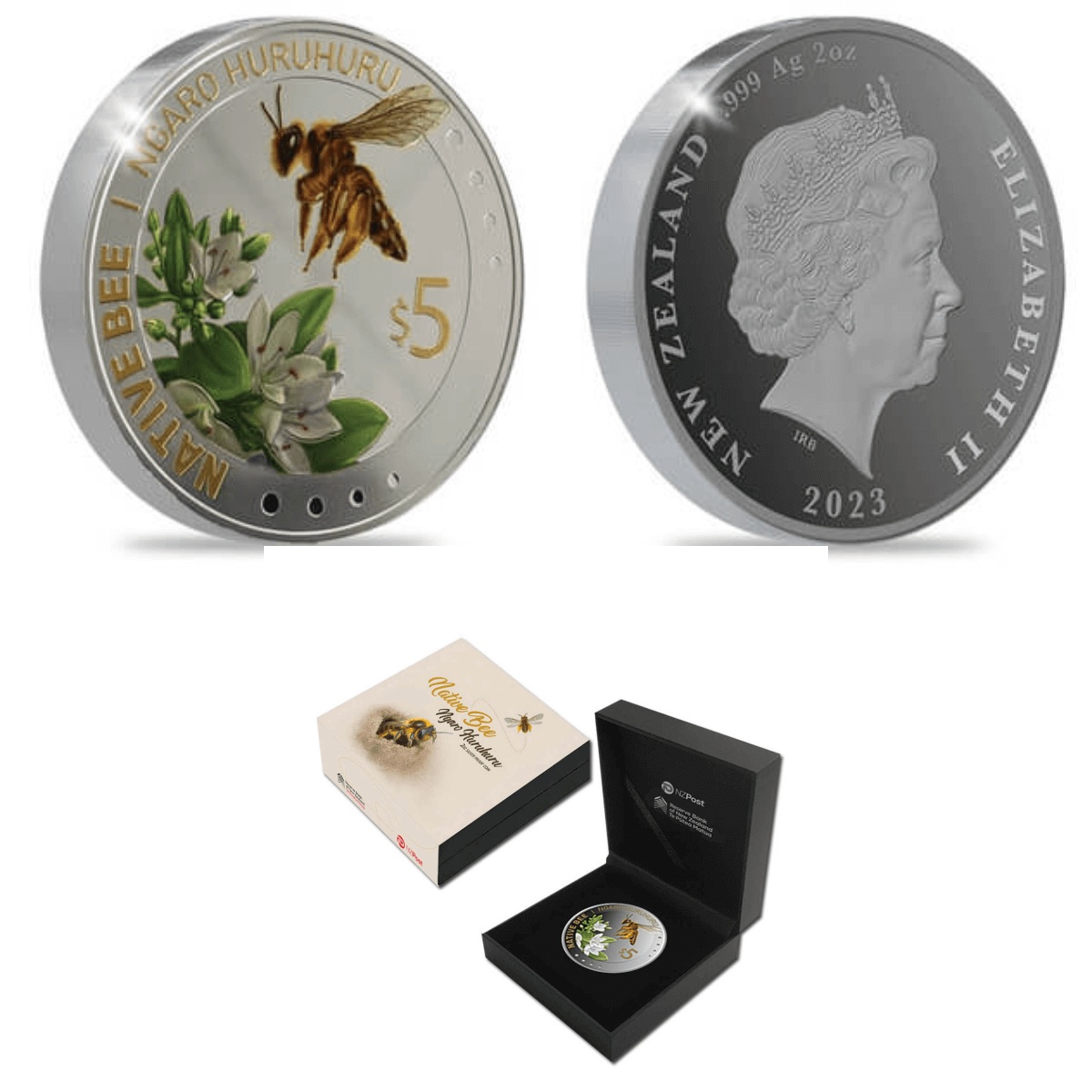2023 New Zealand Native Bee Ngaro Huruhuru 2 oz Silver Proof Coin
Original price was: $250.00.$235.00Current price is: $235.00. USD
Item specifics
| Year of Issue: | 2023 |
| Issuing Country: | New Zealand |
| Weight: | 2 oz |
| Composition: | Silver |
| Purity: | 0.999 |
| Mintage: | 400 |
| Finish: | Colorized, Gold Gilded, Proof |
| Diameter: | 50mm |
| Denomination: | $5 NZD |
| Certification: | Mint Certified |
| Packaging: | Display Box w/COA |
Description
2023 New Zealand Native Bee Ngaro Huruhuru 2 oz Silver Proof Coin
“Your Leader In Modern Collectible Numismatic Coins,” GR Reserve proudly presents the 2023 New Zealand Native Bee Ngaro Huruhuru 2 oz Silver Proof Coin. This stunning piece truly embodies our core promise of “bringing products once exclusive to wholesalers to the retail masses.” In fact, it showcases the unparalleled expertise forged over “100+ years of experience” in precious metals.
This silver coin is the first New Zealand coin to celebrate the native bee. Wellington artist Sacha Lees designed it. It features the native bee species, Leioproctus fulvescens, and mānuka flowers. With a mintage of just 400 coins worldwide, this offering is an extraordinarily rare opportunity. Serious collectors and astute investors can acquire a piece of unparalleled significance. Therefore, it is truly a “true retail destination” for exclusive and impactful numismatic treasures.
Item Specifics:
- Year: 2023
- Country: New Zealand
- Coin Name: Native Bee Ngaro Huruhuru
- Weight: 2 oz
- Fineness: .999 Fine Silver
- Dimensions: 50mm
- Denomination: $5 NZD
- Mintage: 400
- Mint: New Zealand Post
- Finish: Colorized, Gold Gilded, Proof
- Design Details: The coin features a detailed depiction of the Leioproctus fulvescens bee alongside mānuka flowers. Gold-plated text is included in the design.
- Special Features: The coin’s edge has a pattern of recessed circles, which represents the fact that these bees nest in the ground. Ultimately, a display box with a Certificate of Authenticity (COA) presents it beautifully.
Reviews
There are no reviews yet.







Reviews
There are no reviews yet.